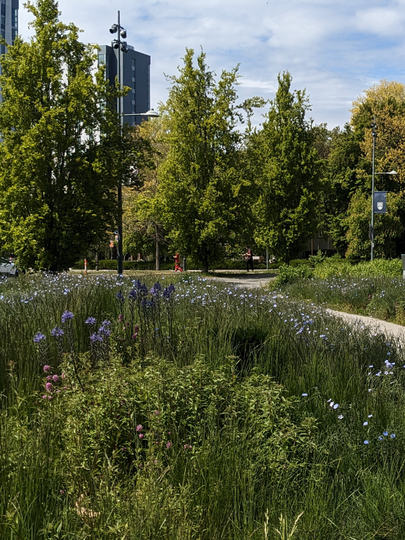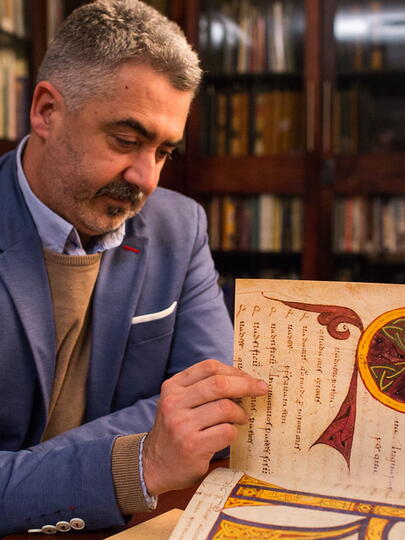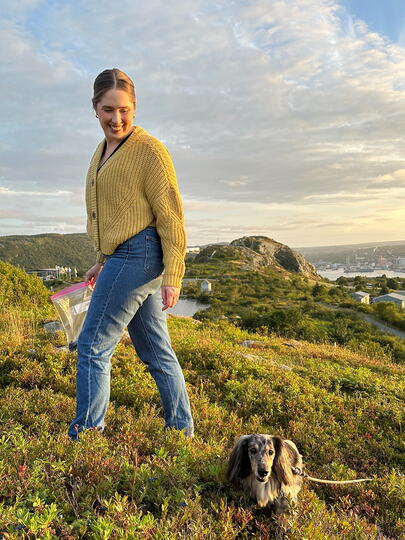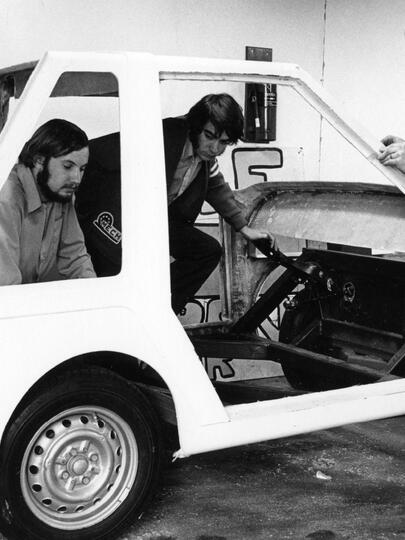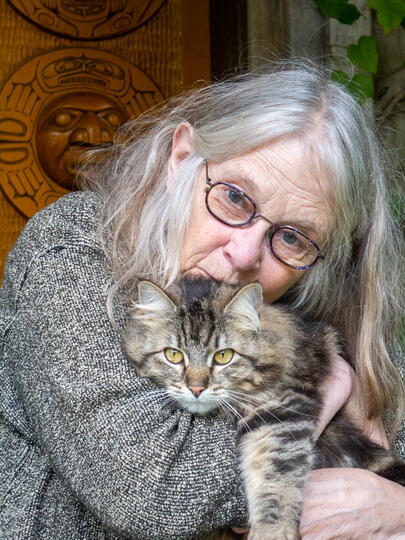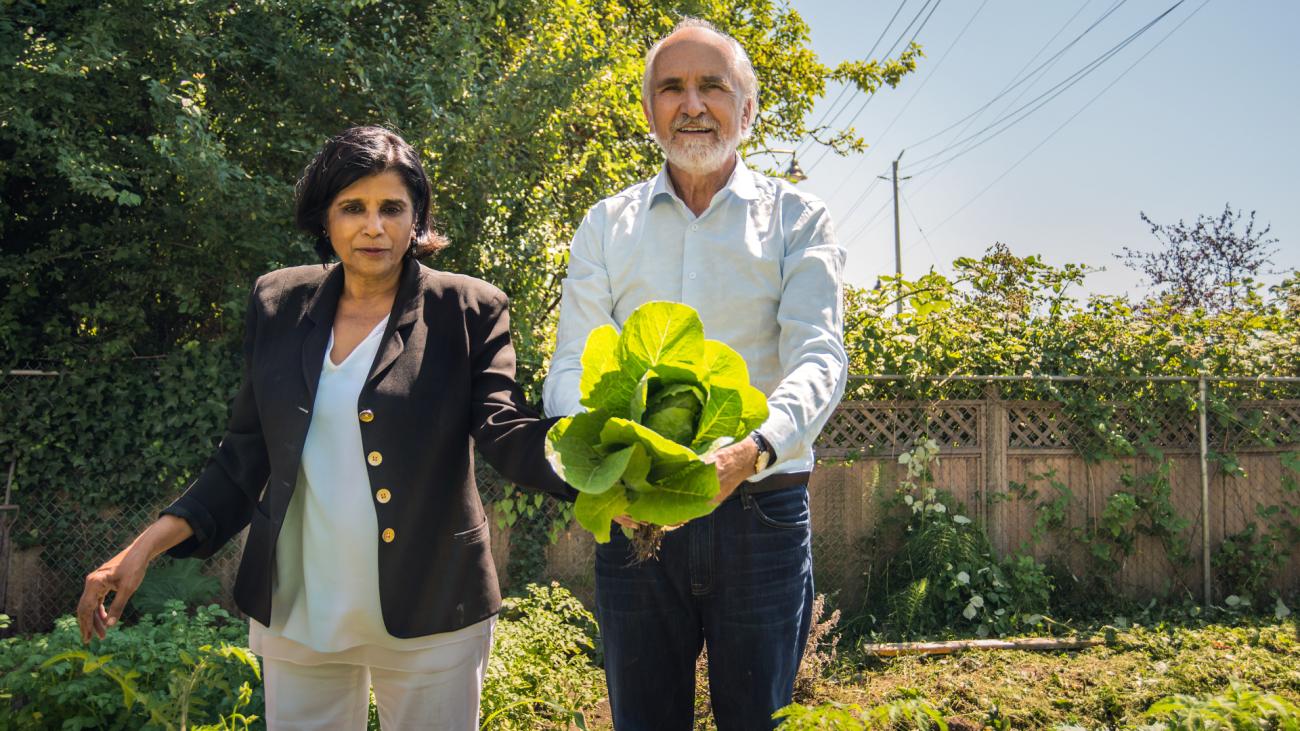Encouraging sustainability one bite at a time
For over half a century, the Vancouver-based founders of Nature’s Path have fueled an appetite for change with their restaurants and companies.
One evening in Vancouver about two years ago, Ratana and Arran Stephens found themselves standing in a long lineup at a vegetarian restaurant, Heirloom, located in the city’s tony South Granville district.
Reflecting upon the situation, Ratana turned to her husband and marvelled at how popular vegetarian food had become since they opened Canada’s first vegetarian restaurant in 1967. That’s in addition to other organic and natural food companies and restaurants that they also launched in British Columbia over the years, including certified organic food company Nature’s Path.
While Arran acknowledges that they can’t take credit for how successful vegetarian and plant-based markets have become, he does feel that he and Ratana have contributed to their development.
“We're just part of something that had to happen — it was meant to happen,” he says in a Zoom interview.
The Stephens were among the pivotal organizations and public figures, such as Greenpeace and David Suzuki, who arose amid Vancouver’s hippie days and have since gone on to become international forces for addressing some of the biggest existential threats that humankind and the planet have faced: pollution, environmental damage, collapsing ecosystems, climate change, extinction.
Despite sounding the alarm decades ago, it’s only now that we’re heeding their warnings on a significant scale and at a critical time period. Although those previously noted names tackled environmental and climate issues head-on, the Stephens have addressed related challenges from a different yet no less influential angle.
Garbage in, garbage out
Arran’s motivation for encouraging healthier choices in food industries arose from what he was noticing in grocery stores. While activism began to protect the outdoors from human impact and waste, Arran became troubled by a different type of pollution he was noticing — one that people were putting into their bodies.
“I was mainly concerned…about the quality of food in the ’60s and ’70s, when everything in the supermarkets was refined, as in white flour, white rice, white sugar, et cetera,” he says. “And everything contained artificial ingredients: artificial colours, artificial flavours, preservatives, and so on and so forth…. There were also very few plant-based, vegetarian options for folks like us.”
With a kind of prescient vision, Arran was able to identify potential opportunities in the food market ahead of the curve — long before the curve even existed. Upon returning to Vancouver after time in India, for instance, he recognized that there weren’t any eateries focussing on vegetarian menus. Consequently, the Stephens launched the Golden Lotus, lauded as Canada’s first vegetarian restaurant, in 1967 in Vancouver’s Kitsilano neighbourhood. Venturing further, they started LifeStream Natural Foods in 1971, which became Canada’s first natural food market. Subsequently, they sold that company to Kraft Foods in 1981 and opened Woodlands Natural Food Restaurant that same year, also in Kitsilano.
Some shoppers may recognize brand names like Love Crunch, Q’ia Superfood, and EnviroKidz from store shelves without realizing they’re from Nature’s Path, which the Stephens launched in 1985. With headquarters in Richmond, the company has since opened manufacturing facilities in Delta, B.C.; Blaine, Washington; and Sussex, Wisconsin. It also acquired Que Pasa Mexican Foods in 2012 and Anita’s Organic Mill in Chilliwack, B.C., in late 2021, and currently offers 150 products, ranging from cereals, oatmeal, and waffles to chips and salsa.
Nourishing change
In order to provide healthy products, Nature’s Path uses certified organic ingredients — which avoid the use of pesticides, synthetic fertilizers, sewage sludge, and irradiation in growth and processing — and launched the first organic cereal manufacturing facility in North America in 1989. Among its efforts to support progressive changes in food production, Nature’s Path signed the Sustainable Food Trade Association’s declaration of sustainability in 2008 and became a founding member of the Non-GMO Project Verified label in 2010.
Arran traces his interest in the organic movement to his family’s 89-acre farm overlooking what is now Goldstream Provincial Park on Vancouver Island. His father, who was an organic berry farmer in the 1950s, taught him to “always leave the soil better than you found it.”
In addition, Arran and Nature’s Path are proponents of regenerative organic agriculture. Arran describes this farming as a means for “regenerating the soil…in a natural way by pulling carbon out of the atmosphere…through a very common sense practice of rotating crops, [and] integrating animals into the agriculture.”
In looking at the history of agriculture, Arran says that he found that many societies that flourished were often the ones that “continuously farmed the same land for hundreds, if not thousands of years” by learning that “whatever you take out of the soil, you need to put back [in].”
Although the regenerative movement has gained ground, he’s concerned about “greenwashing” by major corporations that are practising regenerative farming while simultaneously using genetically modified seeds, herbicides, and chemical fertilizer. While he acknowledges that chemicals provide profit incentives for farmers due to greater crop yields, he warns that they’re expensive — and the health of humans and animals also pay a high price. Furthermore, Ratana adds that using chemicals “depletes the very important nutrients…in the soil” and replenishing degraded soil compounds costs as well.
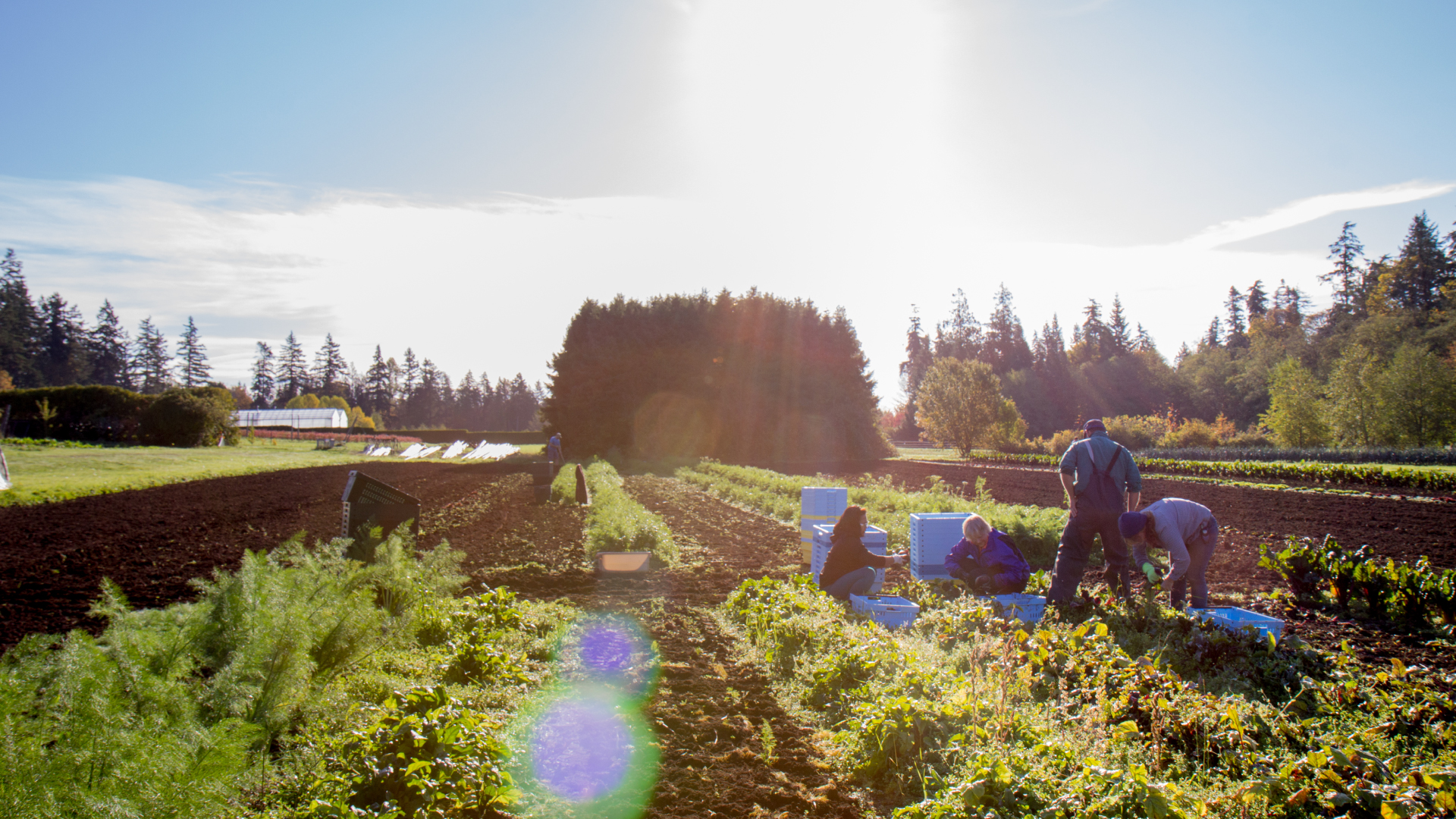
Putting money where mouths are
The precariousness of agricultural land and food security in B.C. was highlighted when atmospheric rivers caused catastrophic flooding that destroyed farms in November 2021. In addition, destroyed highways and bridges cut off Vancouver from the rest of the country and disrupted the delivery of supplies, resulting in shortages and panic buying.
In considering the future of food security, Arran believes that regions need to return to self-sufficiency for food production. He points out that B.C. once was much more independent in this respect, but now heavily relies upon imports from places like California and Mexico.
Consequently, he’d like to see affordable farmland available for farmers, particularly for those who are emerging from working on the last significant parcel of farmland within the City of Vancouver: the 24-hectare UBC Farm.
When a public movement arose in 2005 to save the farm from housing development, Arran got involved.
“I was one of those crazy guys who said, ‘You know, if they bring the bulldozers in there to, quote, develop the UBC Farm into a more concrete and asphalt jungle, then I'm going to get in front of the bulldozers,’” he says.
For Arran’s birthday in 2015, Ratana surprised him by donating $2 million to the farm.
Everyone’s efforts paid off. UBC Farm was saved and all of its produce was certified organic on May 1, 2016. Last year, the UBC Farm — which plays an important role in UBC’s agroecology research and education, and offers over 200 varieties of vegetables, fruits, and herbs — celebrated its 20th anniversary.
Returning the respect
Acts like donating and encouraging regenerative farming are all part of a recurring theme throughout the Stephens’ story in a cyclical pattern of respect.
Ratana explains that giving back has always been part of the culture in India that she grew up in. She has also emphasized to Arjan and Jyoti Stephens, her adult children who are now involved in the business, that they are in the people business first, not just the cereal business. For instance, in 1981, Ratana urged Arran to offer a free Christmas dinner at their Woodlands restaurant, and they also began donating to food banks. Among their ongoing efforts to combat hunger, Nature’s Path launched the Bite4Bite program in 2011 to support local food banks with one million each year.
Their respect for others has been returned. Over the years, the Stephens have garnered an array of accolades, including being appointed to the Order of B.C. in 2021, and receiving the Honorary Alumni Award at alumni UBC’s 2021 Alumni Achievement Awards. As cofounder and CEO, Ratana was named one of Canada’s most powerful women in 2013 and one of B.C.’s most influential women in business in 2020. In addition, Nature’s Path has made the list of B.C.’s and Canada’s top and greenest employers several times.
Facing the future
Despite their perseverance and successes, Nature’s Path is now contending with the challenges that all companies are facing.
While the world over has faced cascading problems due to climate change, the Stephens’ home province was among the places that were particularly battered this past year. In addition to the previously mentioned floods, there was also a deadly heat dome, devastating wildfires, extreme windstorms, and even a freak tornado at UBC Vancouver. (All of this has added to worldwide supply shortages caused by the pandemic, which have been further impacted by Russia’s recent invasion of Ukraine.)
“This year, more than any other year that we've ever seen, we're finding shortages of many basic commodities,” Arran says of climate-related issues. “We're having a real struggle to obtain enough oats, to obtain enough flax, to obtain enough certain oils that we use in our production. We've never had to face this before and also we've seen prices double and triple, just in the last few months, because of these shortages.”
In addition, Arran says the number of staff members sick with COVID-19 affected their production output when there weren’t enough people to operate lines at their facilities.
He warns that all of these changes are “going to hit everybody in their pocketbooks.”
Yet despite how grim things are shaping up to be, as long-time proponents of healthy diets and environmental practices, the Stephens continue to see potential for improvement.
“If a crisis doesn't motivate people, I don't think anything will,” Arran says, reflecting upon what he has seen throughout his years of activism. “But we have to take advantage of the crisis and really start doing stuff individually and collectively and take action.”
When it comes to the future, Arran says they’re greatly inspired by the youth environmental movement, which “would have been unheard of 50 years ago” and has “sparked a greater change than any of us oldsters [have].”
Whether young or old or anything in between, Arran believes that anyone can initiate change for the better at any time.
“It's not too late — it is never too late,” Arran says. “If I hadn't been an optimist, I would never have planted a tree."



